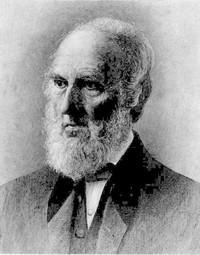Read this ebook for free! No credit card needed, absolutely nothing to pay.
Words: 105068 in 21 pages
This is an ebook sharing website. You can read the uploaded ebooks for free here. No credit cards needed, nothing to pay. If you want to own a digital copy of the ebook, or want to read offline with your favorite ebook-reader, then you can choose to buy and download the ebook.


: The Works of John Greenleaf Whittier Volume VII Complete The Conflict with Slavery Politics and Reform the Inner Life and Criticism by Whittier John Greenleaf - United States Politics and government; Literature History and criticism; Antislavery movements
REFORM AND POLITICS. UTOPIAN SCHEMES AND POLITICAL THEORISTS PECULIAR INSTITUTIONS OF MASSACHUSETTS LORD ASHLEY AND THE THIEVES WOMAN SUFFRAGE ITALIAN UNITY INDIAN CIVILIZATION READING FOR THE BLIND THE INDIAN QUESTION THE REPUBLICAN PARTY OUR DUMB RELATIONS INTERNATIONAL ARBITRATION SUFFRAGE FOR WOMEN
THE INNER LIFE. THE AGENCY OF EVIL HAMLET AMONG THE GRAVES SWEDENBORG THE BETTER LAND DORA GREENWELL THE SOCIETY OF FRIENDS JOHN WOOLMAN'S JOURNAL THE OLD WAY HAVERFORD COLLEGE
CRITICISM. EVANGELINE MIRTH AND MEDICINE FAME AND GLORY FANATICISM THE POETRY OF THE NORTH
THE CONFLICT WITH SLAVERY
JUSTICE AND EXPEDIENCY
OR, SLAVERY CONSIDERED WITH A VIEW TO ITS RIGHTFUL AND EFFECTUAL REMEDY, ABOLITION.
"There is a law above all the enactments of human codes, the same throughout the world, the same in all time,--such as it was before the daring genius of Columbus pierced the night of ages, and opened to one world the sources of wealth and power and knowledge, to another all unutterable woes; such as it is at this day: it is the law written by the finger of God upon the heart of man; and by that law, unchangeable and eternal while men despise fraud, and loathe rapine, and abhor blood, they shall reject with indignation the wild and guilty fantasy that man can hold property in man." --LORD BROUGHAM.
IT may be inquired of me why I seek to agitate the subject of Slavery in New England, where we all acknowledge it to be an evil. Because such an acknowledgment is not enough on our part. It is doing no more than the slave-master and the slave-trader. "We have found," says James Monroe, in his speech on the subject before the Virginia Convention, "that this evil has preyed upon the very vitals of the Union; and has been prejudicial to all the states in which it has existed." All the states in their several Constitutions and declarations of rights have made a similar statement. And what has been the consequence of this general belief in the evil of human servitude? Has it sapped the foundations of the infamous system? No. Has it decreased the number of its victims? Quite the contrary. Unaccompanied by philanthropic action, it has been in a moral point of view worthless, a thing without vitality, sightless, soulless, dead.
But it may be said that the miserable victims of the system have our sympathies. Sympathy the sympathy of the Priest and the Levite, looking on, and acknowledging, but holding itself aloof from mortal suffering. Can such hollow sympathy reach the broken of heart, and does the blessing of those who are ready to perish answer it? Does it hold back the lash from the slave, or sweeten his bitter bread? One's heart and soul are becoming weary of this sympathy, this heartless mockery of feeling; sick of the common cant of hypocrisy, wreathing the artificial flowers of sentiment over unutterable pollution and unimaginable wrong. It is white-washing the sepulchre to make us forget its horrible deposit. It is scattering flowers around the charnel-house and over the yet festering grave to turn away our thoughts "from the dead men's bones and all uncleanness," the pollution and loathsomeness below.
No! let the truth on this subject, undisguised, naked, terrible as it is, stand out before us. Let us no longer seek to cover it; let us no longer strive to forget it; let us no more dare to palliate it. It is better to meet it here with repentance than at the bar of God. The cry of the oppressed, of the millions who have perished among us as the brute perisheth, shut out from the glad tidings of salvation, has gone there before us, to Him who as a father pitieth all His children. Their blood is upon us as a nation; woe unto us, if we repent not, as a nation, in dust and ashes. Woe unto us if we say in our hearts, "The Lord shall not see, neither shall the God of Jacob regard it. He that planted the ear, shall He not hear? He who formed the eye, shall He not see?"
But it may be urged that New England has no participation in slavery, and is not responsible for its wickedness.
Free books android app tbrJar TBR JAR Read Free books online gutenberg
More posts by @FreeBooks

: The Works of John Greenleaf Whittier Volume VI. (Of VII) Old Portraits and Modern Sketches Plus Personal Sketches and Tributes and Historical Papers by Whittier John Greenleaf - Biography; History


: Historical Papers Part 3 from Volume VI of The Works of John Greenleaf Whittier by Whittier John Greenleaf - History





